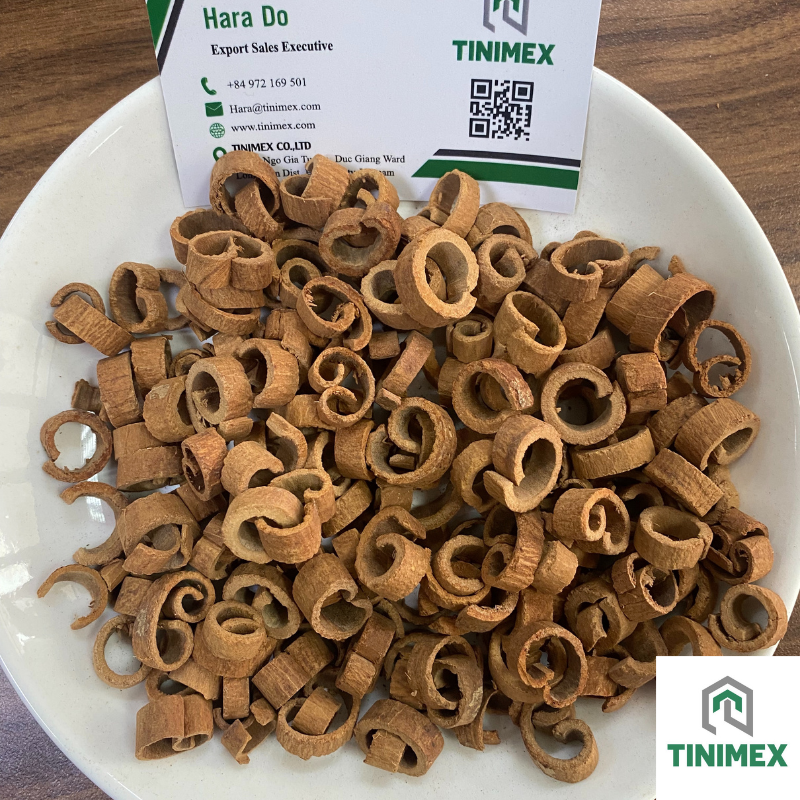Protecting Your Heart Health Every Day with Cinnamon – Nature’s Secret
Cinnamon, a fragrant spice cherished in kitchens worldwide, is more than just a flavor enhancer for your morning oatmeal or latte. This humble spice, derived from the bark of the Cinnamomum tree, holds remarkable potential for supporting heart health. From regulating blood sugar to reducing cholesterol levels, cinnamon’s natural compounds offer a wealth of benefits for cardiovascular wellness. In this article, we’ll uncover how incorporating cinnamon into your daily routine can protect your heart, backed by science and practical tips.
Why Heart Health Matters
Heart disease remains a leading cause of death globally, with millions affected by conditions like hypertension, high cholesterol, and heart attacks. According to the World Health Organization, cardiovascular diseases account for approximately 17.9 million deaths annually. Adopting heart-healthy habits, including a balanced diet and natural remedies, can significantly reduce these risks. Cinnamon, with its potent bioactive compounds, emerges as a natural ally in this mission.
By exploring cinnamon’s benefits, we’ll show you how this spice can be a simple yet powerful addition to your heart-healthy lifestyle. Let’s dive into the science behind cinnamon and its role in cardiovascular care.

The Science Behind Cinnamon’s Heart-Healthy Benefits
Cinnamon contains active compounds like cinnamaldehyde, cinnamic acid, and polyphenols, which contribute to its medicinal properties. These compounds have antioxidant, anti-inflammatory, and anti-diabetic effects, all of which play a role in protecting the heart. Here’s a closer look at how cinnamon supports cardiovascular health:
1. Regulates Blood Sugar Levels
High blood sugar can damage blood vessels and increase the risk of heart disease. Cinnamon improves insulin sensitivity, helping the body process glucose more effectively. A 2019 study published in Diabetes Care found that cinnamon supplementation reduced fasting blood sugar levels by up to 10% in individuals with type 2 diabetes. Stable blood sugar levels reduce strain on the heart and lower the risk of cardiovascular complications.
2. Lowers Cholesterol and Triglycerides
Elevated levels of LDL (bad cholesterol) and triglycerides are major risk factors for heart disease. Cinnamon has been shown to reduce LDL cholesterol and triglycerides while increasing HDL (good cholesterol). A meta-analysis in The Journal of Clinical Nutrition (2020) reported that cinnamon supplementation led to a significant reduction in LDL cholesterol by 9.4 mg/dL and triglycerides by 29.6 mg/dL. These improvements contribute to cleaner arteries and a healthier heart.
3. Reduces Blood Pressure
Hypertension, or high blood pressure, is a silent threat to heart health. Cinnamon’s anti-inflammatory and antioxidant properties help relax blood vessels, improving blood flow and reducing pressure. A 2021 study in Phytotherapy Research found that cinnamon supplementation lowered systolic blood pressure by an average of 5.39 mmHg in participants with prehypertension.
4. Fights Inflammation
Chronic inflammation is a key driver of heart disease. Cinnamon’s polyphenols act as antioxidants, neutralizing free radicals that cause inflammation. By reducing oxidative stress, cinnamon helps prevent plaque buildup in arteries, a condition known as atherosclerosis. According to a study in Food & Function (2018), cinnamon’s anti-inflammatory effects can lower the risk of heart-related complications.
5. Improves Blood Circulation
Cinnamon contains compounds that promote healthy blood flow by preventing blood clots. Cinnamaldehyde, the primary active compound, has mild blood-thinning properties, reducing the risk of blockages that can lead to heart attacks or strokes.

Types of Cinnamon: Which One Is Best for Heart Health?
Not all cinnamon is created equal. The two main types available are Ceylon cinnamon (true cinnamon) and Cassia cinnamon. Here’s a quick comparison:
- Ceylon Cinnamon: Known as “true cinnamon,” it has a milder flavor and lower coumarin content, making it safer for daily consumption. Coumarin, a natural compound in cinnamon, can be harmful to the liver in large amounts.
- Cassia Cinnamon: More common and affordable, Cassia has a stronger flavor but higher coumarin levels. It’s safe in moderation but less ideal for long-term use.
For heart health, Ceylon cinnamon is recommended due to its lower coumarin content and higher concentration of beneficial compounds. Always check product labels to ensure you’re choosing high-quality cinnamon.
How to Incorporate Cinnamon into Your Daily Routine
Adding cinnamon to your diet is easy and versatile. Here are practical ways to include this heart-healthy spice in your daily meals:
Morning Boost: Cinnamon in Breakfast
- Oatmeal or Yogurt: Sprinkle ½ to 1 teaspoon of Ceylon cinnamon over your morning oatmeal or Greek yogurt for a heart-healthy start.
- Smoothies: Blend cinnamon into fruit smoothies with ingredients like bananas, berries, or spinach for a nutritious boost.
- Coffee or Tea: Add a pinch of cinnamon to your coffee grounds or tea for a flavorful, heart-protective twist.
Savory Dishes: Cinnamon in Cooking
- Soups and Stews: Add cinnamon to lentil soups or vegetable stews for a warm, earthy flavor that complements heart-healthy ingredients like beans and greens.
- Meat Marinades: Use cinnamon in marinades for chicken or lamb to enhance flavor and reduce inflammation.
Snacks and Desserts
- Baked Apples: Core an apple, sprinkle with cinnamon, and bake for a naturally sweet, heart-healthy dessert.
- Cinnamon Toast: Spread a thin layer of almond butter on whole-grain toast and dust with cinnamon for a satisfying snack.
Cinnamon Tea
Brew a soothing cinnamon tea by steeping a cinnamon stick in hot water for 10–15 minutes. Add a touch of honey for sweetness, and enjoy a heart-healthy beverage.
Pro Tip: Aim for ½ to 1 teaspoon of cinnamon daily to maximize benefits without overdoing it. Consult a healthcare professional if you’re on medications, as cinnamon may interact with certain drugs, such as blood thinners.
Recipes for Heart Health with Cinnamon
Here are two simple, heart-healthy recipes featuring cinnamon:
Cinnamon-Spiced Overnight Oats
Ingredients:
- ½ cup rolled oats
- 1 cup almond milk
- 1 tsp Ceylon cinnamon
- 1 tbsp chia seeds
- 1 tbsp honey
- Fresh berries for topping
Instructions:
- Combine oats, almond milk, cinnamon, chia seeds, and honey in a jar.
- Stir well, cover, and refrigerate overnight.
- Top with fresh berries before serving.
This fiber-rich breakfast supports heart health by stabilizing blood sugar and reducing cholesterol.
Cinnamon-Baked Sweet Potatoes
Ingredients:
- 2 medium sweet potatoes
- 1 tsp Ceylon cinnamon
- 1 tbsp olive oil
- Pinch of sea salt
Instructions:
- Preheat oven to 400°F (200°C).
- Slice sweet potatoes into wedges, toss with olive oil, cinnamon, and salt.
- Bake for 25–30 minutes until tender.
Sweet potatoes are rich in fiber and antioxidants, making this a heart-healthy side dish.
Keyword Tip: Try cinnamon recipes for heart health to make your meals both delicious and nutritious.
Precautions and Considerations
While cinnamon is generally safe, moderation is key. Excessive consumption, especially of Cassia cinnamon, may lead to liver issues due to coumarin. Stick to ½ to 2 teaspoons daily, and opt for Ceylon cinnamon for long-term use. Additionally, cinnamon may interact with medications for diabetes, blood pressure, or blood thinners. Always consult your doctor before adding cinnamon to your routine, especially if you have pre-existing conditions.
Complementary Heart-Healthy Habits
Cinnamon is a powerful tool, but it works best alongside other heart-healthy habits:
- Eat a Balanced Diet: Focus on whole grains, lean proteins, fruits, and vegetables to support cardiovascular health.
- Exercise Regularly: Aim for at least 150 minutes of moderate exercise weekly, such as brisk walking or cycling.
- Manage Stress: Practice mindfulness or yoga to reduce stress, a known risk factor for heart disease.
- Quit Smoking: Smoking damages blood vessels and increases heart disease risk.
- Regular Checkups: Monitor blood pressure, cholesterol, and blood sugar with your healthcare provider.
The Role of Cinnamon in a Holistic Heart-Healthy Lifestyle
Cinnamon is not a cure-all, but its consistent use can complement a heart-healthy lifestyle. By incorporating this spice into your diet, you’re tapping into nature’s pharmacy to support your cardiovascular system. Whether it’s through a warm cup of cinnamon tea or a sprinkle on your morning oats, small changes can lead to significant results.
Conclusion: Embrace Cinnamon for a Healthier Heart
Cinnamon is more than a culinary delight—it’s a natural powerhouse for heart health. From lowering cholesterol to improving blood flow, its benefits are backed by science and easy to integrate into daily life. By choosing Ceylon cinnamon and using it in moderation, you can unlock its full potential while minimizing risks. Pair cinnamon with a balanced diet, regular exercise, and healthy habits to protect your heart every day.
Ready to start your heart-healthy journey with cinnamon? Try the recipes above, experiment with new dishes, and consult your doctor to ensure it fits your health plan. Nature’s secret is within reach—sprinkle some cinnamon and take a step toward a healthier heart today.



